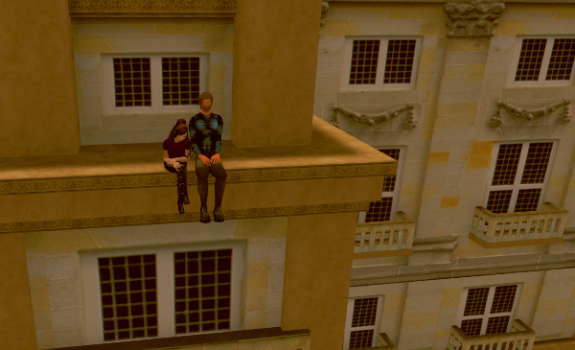Editor’s note: This article was updated on 1/27/2023 to remove dead links and links to malicious sites.
InWorldz and Avination — two of OpenSim’s biggest and oldest commercial grids — have just made extremely large code donations to the OpenSim community.
OpenSim server code is distributed under the BSD license. This means that people can make changes to it and keep those changes proprietary. At one point, for example, IBM had its own version of OpenSim that it was selling, and ReactionGrid had its own commercial distribution of OpenSim.
This is different from the viewer code, which is distributed under the GPL license. That license prohibits companies from creating locked-down, proprietary versions of the viewer.
So there is nothing wrong with commercial grids making changes to the OpenSim code base and keeping those changes private. But, of course, it’s nice for the community when grids donate fixes back so everyone can benefit — and it helps the grids themselves, as well, by allowing them to benefit from improvements that other grids, in turn, make to that new code.
InWorldz donates Halcyon virtual world simulator
InWorldz has long been the leading commercial OpenSim grid, and the most popular grid with users. It has also invested quite a bit of resources into hardening the code base, patching bugs, and making many other improvements for the benefits of its residents.
Now all those improvements are available to the wider community, on the project’s GitHub page.
Any grid manager can go and grab it.

“Anyone that has a need for a stable and resource-conscious simulation or who runs a large grid will find our code particularly useful,” InWorldz founder and CTO David Daeschler told Hypergrid Business. “We have concentrated hard in the areas of scripting, physics, asset storage, inventory storage, and load handling. Out of the box, we have a solution that when configured properly can handle more than 500 users online with scalability into the thousands or more. It also requires less reboots due to the patching and rejection or replacement of components that had severe memory leaks or other problems that caused them to go into undefined states.”
The donated code includes everything needed to run the simulator, the inventory, and the asset servers as well, though it’s not necessarily easy to set up and run for novices.
“We’ll be releasing components that make the setup and hosting of Halcyon regions more automated in the next couple of weeks,” he added.
Daeschler said other developers are welcome to fork the code, or use branching and pull requests to make changes.
With this release, InWorldz becomes an open source software company, Daeschler said in a blog post where he goes into more depth about the specifics of the technology.
“I’ve always wanted this to be an open source company,” Daeschler told Hypergrid Business. “There were just some factors blocking that and we feel the situation is now changed enough to do what we first intended.”
Avination donates all its improvements directly to OpenSim core
Meanwhile, on the other side of the Atlantic, one of InWorldz’ commercial competitors, Avination, has also donated all of its code, and checked it into OpenSim’s Git repository.
That includes Avination’s current server code as well as its previously proprietary physics engine, ubOde.
One of the benefits of the new code are vehicle region crossings and nearly 100 percent physics compatibility with Second Life, Avination spokesperson Leonie Garter told Hypergrid Business.

Other features include Parcel Privacy and Parcel Banning, which help protect residents from unwanted visitors or Peeping Toms, and an unscripted sit function, which allows avatars to sit on any object.
These changes will soon be making their way into the official release of OpenSim.
Avination grid owner and OpenSim core developer Melanie Thielker was a guest on the Inworld Review Saturday night with me and host Mal Burns, where she talked about the code donation. She said that she would have liked to donate the code earlier, but personal health reasons made it difficult. Now those problems have been addressed, she added.
The full video is over two hours long — if anyone spots where her discussion of the server code begins, please mention it in the comments!
What does all this mean for the OpenSim community?
Obvious, we, the users, come out ahead. Any competition as to who can donate the most improvements to the code is a good competition, from where I’m sitting.
What the specific implications are, however — that’s too early to tell.
I’m hoping to get more information on both these code bases, and what new features and benefits OpenSim grids will be able to see as a result, and will keep you posted.
- Kitely Mega Worlds on sale for $90 per month - July 19, 2024
- OpenSim regions up, actives down with summer heat - July 15, 2024
- People think AIs are conscious. What could this mean for bots in OpenSim? - July 12, 2024
